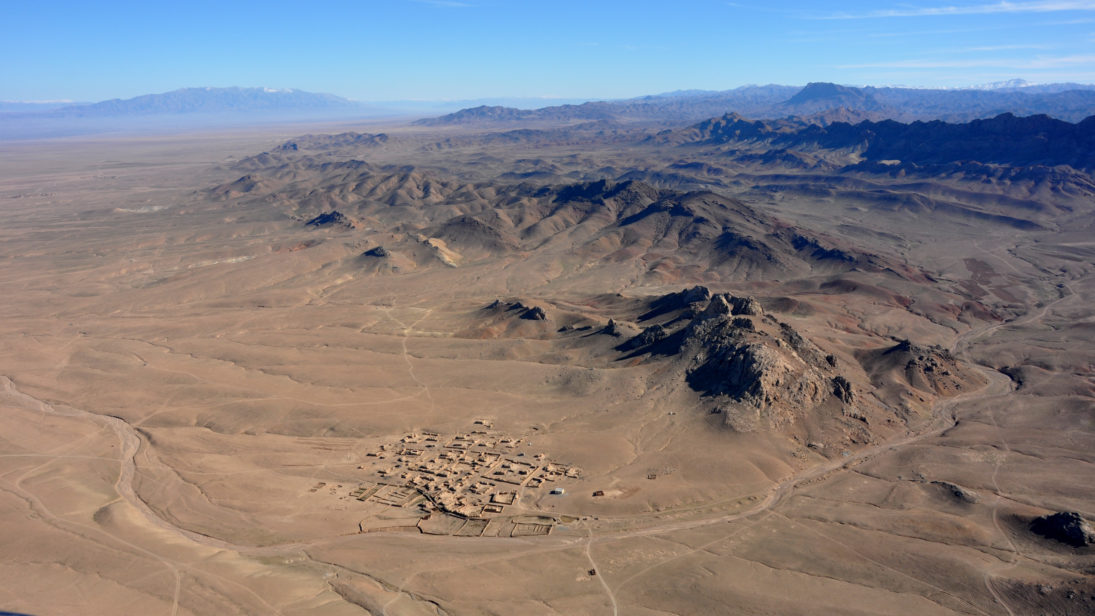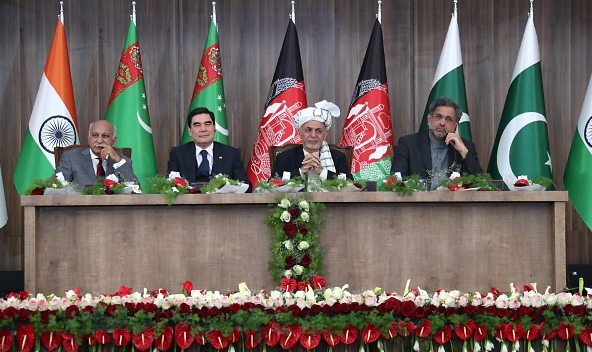
With the inauguration of the Turkmenistan-Afghanistan-Pakistan-India (TAPI) gas pipeline’s Afghan section at the end of February in Herat, there is much hope that this project will materialize in the next few years. Afghan President Ashraf Ghani’s tweet, calling TAPI’s progress “a new chapter of economic growth and regional connectivity,” demonstrates Afghanistan’s optimism and the significance of this project for all four countries involved. Promoted by Turkmenistan since the early 1990s, this 1,814 kilometer (1,127 mile) pipeline would extend from Central Asia to South Asia with Afghanistan as the bridging state. Given the challenges that have delayed the successful completion of the TAPI pipeline, each tiny step forward is a milestone. However, many of these challenges, such as a shortage of financial resources as well as numerous security and geopolitical concerns, may still threaten the project’s completion.
Obstacles to the TAPI Pipeline’s Security
Security in Afghanistan continues to be chief among the concerns surrounding the TAPI project. However, in a key development, the Taliban recently declared its open support for the construction of the pipeline. While this might be cause for optimism, it is not the first time that the Taliban has offered their support for the project. In 1998, the ruling Taliban agreed to support and provide security to TAPI, but this arrangement reportedly later deteriorated. Even in 2016, the Taliban made similar statements on protecting and supporting Afghanistan’s important infrastructure projects in areas under Taliban control. However, these later turned out to be hollow promises, and TAPI remains vulnerable to the risk of disruption by militant groups in Afghanistan.
Apart from bridging Afghanistan’s chronic energy deficit, TAPI has the potential to facilitate the reconstruction of the war torn country by providing much-needed financial resources up to 500 million USD, according to Afghan government officials in Kabul. However, in order to safeguard these interests, Afghanistan has pledged 7,000 security personnel to protect the pipeline, which would prove to be a huge financial burden for Kabul. Furthermore, Afghanistan must also ensure the safety of its energy infrastructure, including transmission lines and electricity grids, which have often been targeted by the Taliban. Thus, for TAPI to work for Afghanistan—and, by virtue of geography, for Pakistan and India as well—the government in Kabul will have to devote vast resources to the protection of the pipeline and its energy infrastructure.
Similarly, Pakistan is an energy-deficient country that will benefit from Central Asian gas to meet the rising energy demand at home. However, a major portion of the 826 km (513 mile)-long Pakistan section of the TAPI pipeline falls in the Balochistan province, which has been plagued by insurgency. Its capital, Quetta, has been a hotspot of terrorist attacks from the Islamic State. Thus, there could be significant security challenges to the Afghanistan and Pakistan portions of the TAPI pipeline.
Geopolitical Challenges
Apart from security challenges, geopolitical concerns could also be a major roadblock for this transnational pipeline project. As its energy requirements are steadily growing, India, who joined the project in 2006, would benefit immensely from TAPI becoming functional. Through this project, India will be able to establish connectivity with the energy-rich Central Asian Republics, to which it currently does not have access due to tensions with its neighbors, Pakistan and China. For this reason, New Delhi has been looking for alternate routes, especially through Iran. The countries in Central Asia have also showed their interest in boosting their economic ties with India, as evidenced by Kazakhstan’s interest in supplying 3 billion cubic meters of natural gas annually to India through the pipeline. However, the growing friction between New Delhi and Islamabad must be resolved for India to reap the benefits of greater regional cooperation on energy. As a destination country, India could be at a disadvantage if a transit country, specifically Pakistan, leverages its position to fulfill its vested interests and stop or regulate the supply of gas during a moment of tension in India-Pakistan ties.

Financial Concerns
A challenge that is common to all the countries in the project is the financing of the pipeline. The pipeline’s four-country consortium, TAPI Pipeline Company Limited, consists of the state-owned gas companies of all four countries. However, Turkmenistan’s state-owned gas company, Turkmengaz, heads the consortium and has pledged to arrange 85 percent of the funding required for the project. The remaining 15 percent is shared equally between Afghanistan, Pakistan and India. Nevertheless, the consortium’s ability to fund this multimillion dollar project is in question. For instance, though Turkmenistan held a groundbreaking ceremony for its 214 km (133 mile) section of the pipeline in 2015, whether the section is fully completed is in question as there is little documented evidence to prove its completion or progress. Furthermore, the country is going through a financial crunch due to reduced gas prices and is known to have garnered little external funding from major global energy companies for construction of the pipeline. Even though the Asian Development Bank (ADB) is financing part of the project, foreign funding is becoming even more crucial as the construction of the pipeline progresses.
As for potential foreign funders, Saudi Arabia has shown some interest in financing the TAPI pipeline through the Saudi Development Fund. Even Japan is expected to support the project as soon as the ongoing discussions between Japan and Turkmenistan conclude. Beijing has also emerged as a potential funder, since Turkmenistan is a part of China’s Belt and Road Initiative (BRI), and China is also the largest buyer of Turkmen gas. This would help China extend BRI to India’s western borders, as the functioning of TAPI would mean more connectivity and linkages between Central Asia and India. China’s close links with Pakistan, Afghanistan, and Turkmenistan would help it extend BRI to Pakistan, where the China-Pakistan Economic Corridor (CPEC) is gathering pace. However, there have been no official statements from China on its willingness to support the TAPI pipeline financially. Without doubt, the TAPI project will require financial assistance from countries for the construction of the pipeline as well as infrastructure development so partner countries may utilize the gas that reaches them. However, with the outlook on foreign financial support for TAPI unclear, it remains to be seen how the project will proceed to completion.
Conclusion
Considering the geopolitical and geoeconomic significance of the TAPI project, the expectation is that even adversaries like India and Pakistan might set aside their differences to come together for mutual economic benefit. However, the challenges are numerous, with little financial backing to tackle them. An assurance of safety from the Taliban for this $10 billion project could be a game-changer in promoting energy security for all parties by 2020, if it manages to be functional by the proposed deadline. There are still hurdles ahead, however: even if financial and security issues get resolved and construction progresses smoothly, all parties will still have to come to a consensus on the pricing arrangement, gas quotas, and logistical challenges. Another chronic issue will be India and Pakistan’s rotation between periods of cooperation and competition, a frustration that is unlikely to be resolved in the near term. Despite these risks, the TAPI gas pipeline project stands to ease the energy deficit as well as the trust deficit in South Asia.
***
Click here to read this article in Urdu.
Image 1: USACE Afghanistan Engineer District-South via Flickr
Image 2: Hoshang Hashimi via Getty


